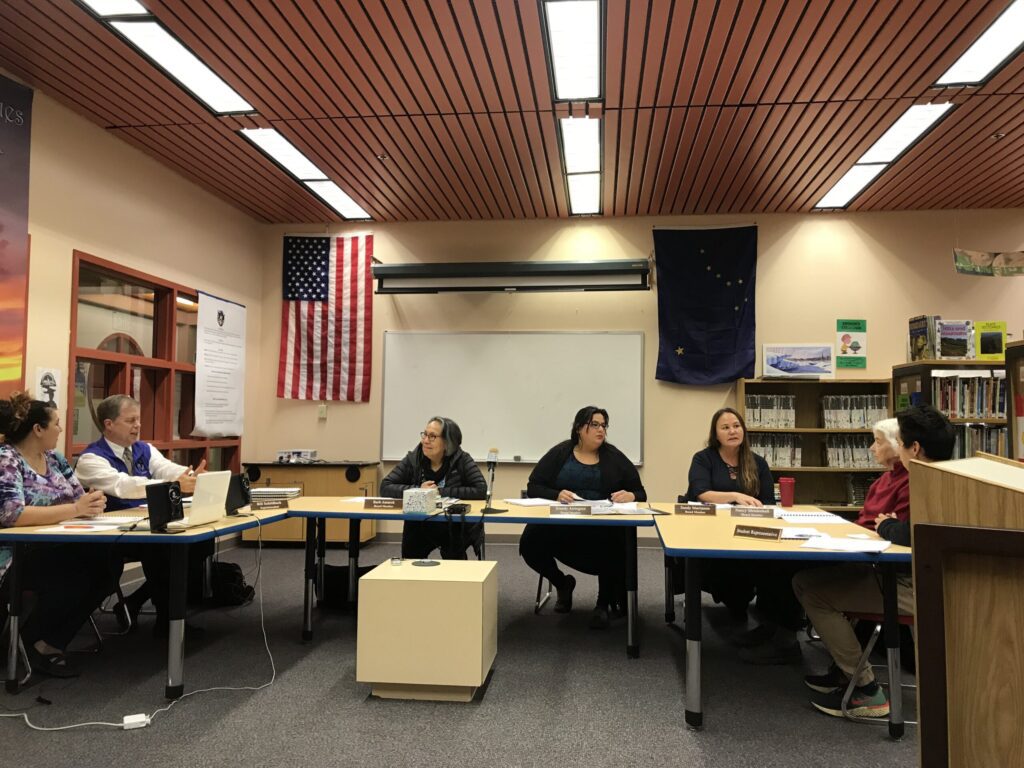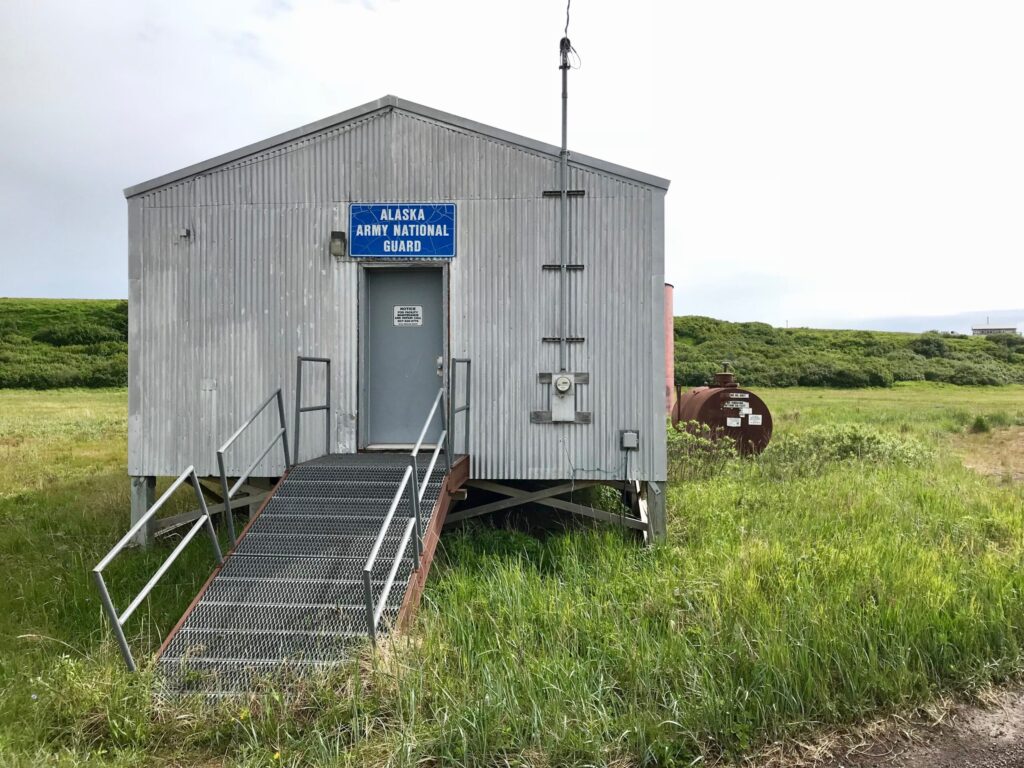Forrest Dunbar is a newcomer to Alaska’s political scene—he’s never held office before—but when he tells people why he’s running for the state’s only seat in the U.S. House of Representatives, he first tells people where he’s from.
“I lived in Eagle, which is a little town on the Yukon down by Dawson City. And when I was seven we moved to Cordova, where my parents still live, and that’s what I still consider my home town.”
Dunbar says it’s not just growing up off the road system that’s prepared him to tackle the job of representing Alaska—he says it’s also his background. College, two years in the Peace Corps, a law degree earned at Harvard and Yale. He’s also a first lieutenant in the Alaska National Guard.
“I also had the opportunity to live, work, and study in Washington, D.C., including some time in the Hill, and that’s sort of what precipitated this run and this experience.”
He has at least one thing in common with his opponent, Don Young, as the two vie for Alaska’s only seat in the U.S. House. Both men agree that federal overreach into the affairs of state—and into the lives of ordinary Alaskans—is out of check.
Dunbar says the most important area where the pendulum needs to shift back in favor of the individual is the criminal justice system, and what he calls the overreach of federal drug laws.
“It is a big part of how I see the world, and what I think needs to change in Washington, D.C.”
Growing up in Eagle and Cordova, Dunbar says he saw the destructive force of substance abuse first-hand. But he says his time working in Alaska’s Office of Public Advocacy—a group that offers legal assistance for vulnerable Alaskans, including children—let him see the deeply-rooted problems of drug and alcohol abuse in a new light.
“Alcohol is really the central problem in Alaska, more than anything else, it is our relationship with alcohol. It’s just undeniable. Almost every violent crime I saw was alcohol related. It was remarkable, and terrible. Certainly domestic violence, even most sexual abuse cases. Almost always alcohol was a factor. And alcohol is legal in this country! So, making something legal or illegal, I don’t think should really be the focus. The issue is, the criminal justice system, I believe, is not very capable of dealing with a lot of substance abuse issues. We need to start approaching substance abuse like a public health issue, which is what it is, a public health crisis. And there are times when the criminal justice system is going to be brought in, and used, no doubt. But for the vast majority of users and abusers, it’s a public health issue, it’s not a criminal justice issue.”
Dunbar admits that, in many parts of rural Alaska, the question of alcohol should stay with communities through the local option: dry, damp, or wet. But he says, in Congress, he wants to change the way federal drug laws impact the state—and every-day Alaskans.
“At the federal level a lot of it is about reducing federal intrusion into the state, and even down into the locality. The ‘war on drugs,’ as it’s now described, and the DEA [Drug Enforcement Agency], is one of the biggest ways in which the federal government goes into a state, and impacts that state, and directly impacts people in that state. It’s problematic. And they also sort of co-opt, and use local law enforcement, through money, and that local law enforcement is distracted from things like sexual abuse, and violent crime, and those kinds of things which I think we as Alaskans care more about.”
Dunbar says he’ll vote “yes” on Ballot Measure 2—the question of legalizing the sale and use of marijuana in Alaska for adults over the age of 21 that goes before voters on Nov. 4—but he says drug laws need to shift their focus away from the substance.
“The key is the person. The human being. What are they going through? What kind of historical trauma has their family experienced? You know, focus less on the substance and more on the person. Because in a lot of cases, people are self medicating, and we have to think about why they are medicating that way, and get at that, that is the root of the issue.”
There’s more to his bid for Congress than tackling drug laws: Dunbar says the challenge for any young lawmaker is finding ways to create jobs back home. And when it comes to oil and gas, timber and tourism, Dunbar says everything is on the table.
“What are the jobs going to be? Are they going to come from oil and gas, are they going to come from mining, or are they going to come from somewhere else? And I think the answer to that is, they’re going to come from everywhere, from all of those things. At the same time, we’re going keep our sustainable resources, our fishing, our timber. And we’re going to develop new resources. We’re going to hopefully have more hi-tech industry coming first into Anchorage and then all over the state. You know, the fiber line goes live to home in 2015 in Anchorage. And that is going to be a game changer. I remember I was having a talk with one of my friends who’s a tech consultant in Washington, D.C., and he says one of Google’s largest expenses is cooling. And thought, wow, we’ve got cooling! Haha. And what we need is the infrastructure, and that’s really where the federal representative comes in, is getting that critical infrastructure into Anchorage, into Fairbanks, into the bush communities, getting it everywhere so people can participate in this modern economy.”
Maybe not “everything” is on the table, he admits: Dunbar says projects like the proposed Pebble Mine in Bristol Bay aren’t worth the risk.
“While we want to get our jobs from everywhere, there are some things we don’t want to risk. What they would be doing is putting the world’s largest open pit mine over its most abundant red salmon stream. And I just think that is too large a risk. Because, while we want to have mining jobs, and there are certainly a lot of mining projects we want to support, the fish are forever. And we have to be careful, because those fish, it’s not just a commercial resource, it’s a cultural resource. And we cannot risk destroying this sustainable resource, which is going to continue to provide jobs, and a lifestyle, and a connection to a culture, hopefully forever.”
Forrest Dunbar is running for Alaska’s sole seat in the U.S. House in Alaska’s Nov. 4 election.







